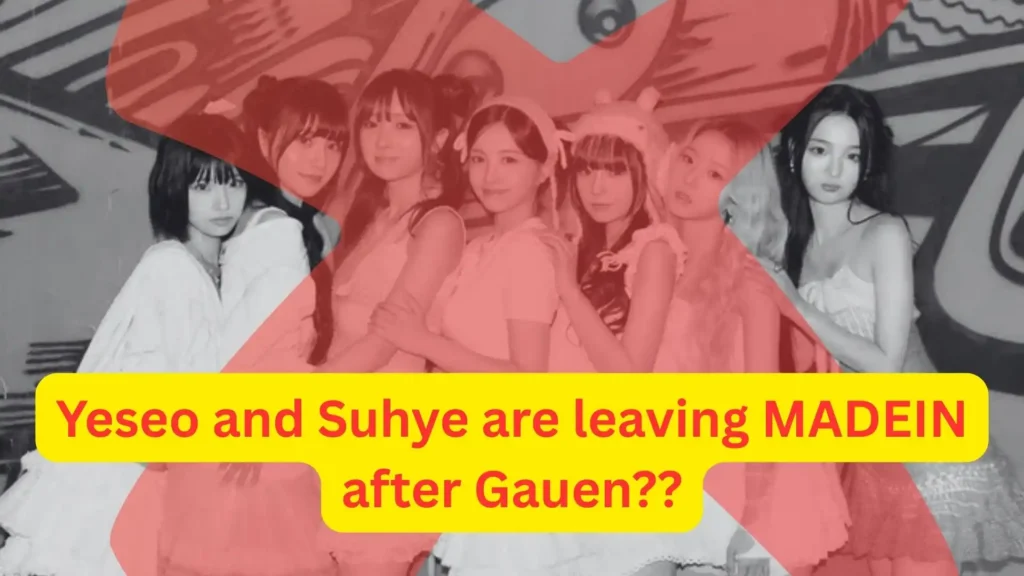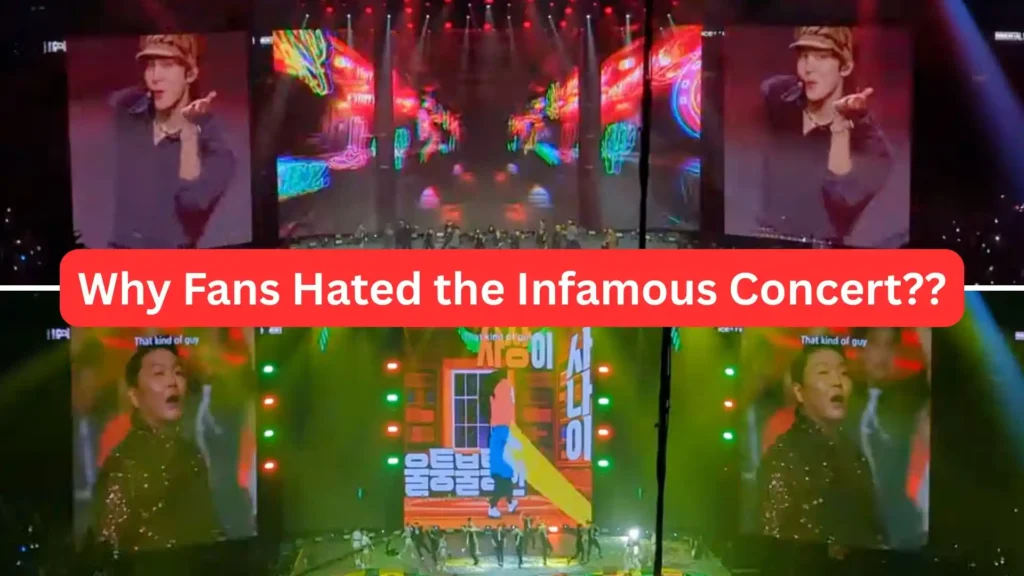Who’s Afraid of Year Seven?
Anyone with a love for K-pop has heard of the feared “7-year curse”—a phenomenon shrouded in both reality and superstition that affects idols, agencies, and millions of fans worldwide. The so-called curse refers to the widespread trend of idol groups either disbanding or losing members as they reach their seventh year in the music industry, a fate that has sparked tension, heartbreak, and debate throughout K-pop history.
Table of Contents
Unpacking the Lore: What is the 7-Year Curse?
At its core, the “7-year curse” is not supernatural, but is a direct result of industry rules: since 2010, the maximum length of a South Korean entertainment contract was capped at 7 years following highly publicized legal battles over exploitative, excessively lengthy “slave contracts.” As a result, most K-pop idols sign these 7-year deals at debut, and when they reach contract renewal time, groups face make-or-break decisions: whether to stay together, pursue new opportunities, or, sometimes, dissolve altogether.
“The 7 year curse also includes that a group won’t make it past 7 years without losing a member. Most should be familiar with it, especially 3rd gen and up fans. 7 years is the standard length of an idol/group contract… Many groups disband after their 7 year contract, hence the 7 year curse.”
Not every group succumbs to the “curse” by disbanding—some lose one or more members, while others continue on as fractured units. Yet a growing number of groups, including BTS, SHINee, Super Junior, TWICE, and SEVENTEEN, have managed to survive—and even thrive—beyond this milestone, solidifying the 7-year mark as both a peril and a rite of passage.
Countdown to Year Seven: When and Where Did It All Begin?
The phenomenon first gained attention in the early 2010s, intensified by the Fair Trade Commission’s implementation of the 7-year contract rule in 2010. Since then, nearly every major K-pop group, from legendary acts of the second generation like 2NE1 to current superstars like BLACKPINK and THE BOYZ, has faced public scrutiny and speculation around their seventh anniversaries.
Behind the Curtain: Why Does the ‘Curse’ Persist?
Why is the 7-year mark so pivotal?
- Contract Law: After seven years, idols and agencies renegotiate, often weighing financial success, creative ambitions, and personal well-being.
- Market Dynamics: Many idol groups peak in popularity and earnings during their first seven years. Agencies are always scouting the next big thing, sometimes opting to invest in newer groups.
- Member Aspirations: Individual members may wish to pursue solo careers, acting, or other media work.
- Mandatory Military Service: Especially for male idols, South Korea’s compulsory military service can disrupt group activities.
- Changing Tastes: The K-pop scene evolves rapidly, and older groups risk falling out of the spotlight as fans gravitate toward newer acts.
Despite these hurdles, the curse is also a reflection of the industry’s struggle with sustainability and fair treatment, pushing for ongoing debate about better contractual conditions and creative freedom for idols.
Breaking Up, Powering Through, or Reuniting: How Do Groups Navigate the Curse?
The 7-year curse plays out in multiple ways:
- Disbandment: Groups like 2NE1 and Weki Meki officially ended activities after their seventh year.
- Lineup Changes: Groups such as EXO and Girls’ Generation lost key members but continued with new formations.
- Renewal and Survival: Groups like BTS, TWICE, SEVENTEEN, and Red Velvet renewed contracts with all members, inspiring hope that the curse can be “broken”.
- Reunions and Comebacks: Increasingly, groups reunite for special performances or even new music years after “falling victim” to the curse, as seen with 2NE1’s legendary Coachella return.
Quick Read: NJZ Heads to Court Over ADOR Contract: The K-Pop Saga Shaping the Industry
Fan Heartbeats: The Pulse of the K-Pop Community
Every year, as prominent groups reach the 7-year milestone, online communities and fan forums light up with anxiety, anticipation, and speculation. For example, ahead of BLACKPINK’s seventh anniversary, fan excitement over global projection stunts was clouded by fears of the “seven-year itch”. The emotional stakes are high; fans recount heartbreak when beloved groups dissolve and cheer triumphantly when their favorites survive the curse. Social media campaigns (#JYPEjerk, #ThankYouWekiMeki, and others) have trended globally as fans voice frustration at agencies and support for idols’ autonomy and happiness.
Comments range from resigned acceptance—“It’s just business, but it still hurts”—to fervent faith in their group’s bond, such as, “They’re family, the curse can’t touch them!” Recent years have also seen a more nuanced conversation, with fans and analysts questioning whether the curse is fading as more groups find novel ways to persist, collaborate, and reconnect.
Looking Forward: Can K-Pop Outgrow the 7-Year Curse?
The future of the seven-year curse remains uncertain but promising:
- Changing Contracts: As agencies adopt more flexible deals, idols have greater negotiating power and creative control.
- International Audiences: Global popularity gives groups more avenues for music and touring, making them less dependent on traditional agency support.
- Reunion Trend: Nostalgia-fueled reunions and anniversary projects now thrive, allowing groups to return even after contract expirations.
- Fan Empowerment: Fans mobilize to support idols directly, from streaming campaigns to patron-funded ventures, blunting the blow of industry-driven disbandment.
While some see the 7-year curse as a damning industry flaw, others view it as a myth that can be overcome with evolving attitudes and collaboration between idols, agencies, and fans. As K-pop continues to mature and reach new audiences, the true legacy of the seven-year curse may be not in the groups it ended, but in the ones that survived, inspiring the next generation of artists and fans alike.
Quick Hits: Who Survived the Curse? Who Didn’t?
| K-pop Group | Beat the 7-Year Curse? | Details |
|---|---|---|
| BTS | Yes | All renewed; still active |
| TWICE | Yes | All 9 renewed in 2022 |
| GOT7 | Yes | Left JYPE, continued as group |
| BLACKPINK | Yes | Renewed group activities 2023 |
| EXO | Partially | Some member departures, still active |
| 2NE1 | No | Disbanded in 2016, later reunited for special events |
| Weki Meki | No | Disbanded after 7 years |
Beyond the Curse, Toward a New Era
The “7-year curse” is both a cautionary tale and a catalyst for hope in K-pop. As the industry adapts and fans become ever more engaged, the curse’s grip weakens year by year. Whether it’s a myth or a market reality, its influence is undeniable—and whatever happens at the seven-year mark, K-pop fans can be sure there’s more to come, both on and off the stage.
What is the 7-year rule in K-pop?
As per the Korean Entertainment standard, the K-pop contracts are limited to a maximum of 7 years by the companies. As groups approach the standard mark, breakups, disbandment, label changes, and departures end the K-pop group before completing the contract. It is widely known as the 7-year curse by the people.




Pingback: Idol’s Cheating Scandal Sparks Outrage as Fans Deliver Condoms to His Door - insiderkpop
Pingback: SCANDAL ROCKS J-POP: Teenage Idol Allegedly Raped and Impregnated by Producer's Boyfriend in Shocking Industry Abuse Case - insiderkpop
Pingback: After the Rush: BTS V Airport Incident Confronted as V Sparks a Wake-Up Call - insiderkpop
Pingback: Baekhyun Instagram Explodes As EXO Comeback - insiderkpop
Pingback: K-pop Band LIGHTSUM to Disband After Agency Statement? - insiderkpop
Thanks for sharing. I read many of your blog posts, cool, your blog is very good. https://accounts.binance.com/ES_la/register-person?ref=VDVEQ78S
Thank you for your sharing. I am worried that I lack creative ideas. It is your article that makes me full of hope. Thank you. But, I have a question, can you help me? https://www.binance.com/register?ref=IXBIAFVY
Thanks for sharing. I read many of your blog posts, cool, your blog is very good.